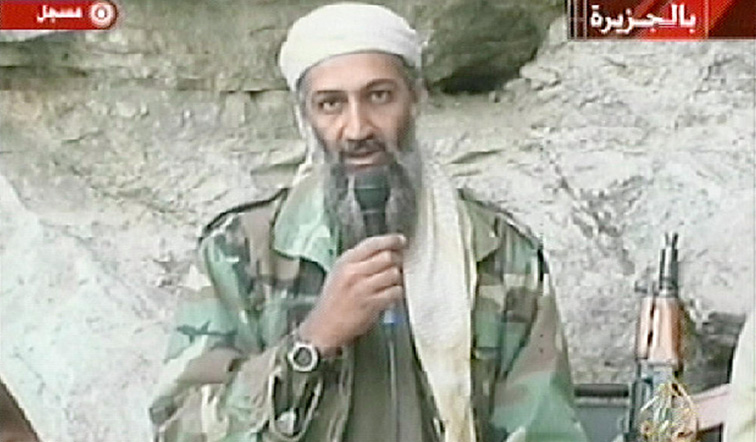The Osama bin Laden trove: 9 things we've learnt about him
A book claiming that 9/11 was an inside job was among possessions found in bin Laden's hideout

A free daily email with the biggest news stories of the day – and the best features from TheWeek.com
You are now subscribed
Your newsletter sign-up was successful
United States officials have published details of a trove of books and files they say were found at Osama bin Laden's Pakistan hideout the night the al-Qaeda chief was killed. They are a mix of the conspiratorial, romantic and bizarre. Here is what they teach us about the former Taliban leader.
Osama bin Laden had a romantic side
In a letter to one of his wives, bin Laden tells her she filled "my heart with love, with beautiful memories." He added: "You are the apple of my eye, and the most precious thing that I have in this world."
The Week
Escape your echo chamber. Get the facts behind the news, plus analysis from multiple perspectives.

Sign up for The Week's Free Newsletters
From our morning news briefing to a weekly Good News Newsletter, get the best of The Week delivered directly to your inbox.
From our morning news briefing to a weekly Good News Newsletter, get the best of The Week delivered directly to your inbox.
He used metaphors
In correspondence with his lieutenants, he instructs one that their "job is to uproot the obnoxious tree by concentrating on its American trunk".
He wanted to understand the West
Among the books bin Laden owned were Obama's Wars by Bob Woodward, and retired British colonel John Hughes-Wilson's study of military intelligence blunders. As he read CIA officer Michael Scheuer's 2004 book, Imperial Hubris: Why the West Is Losing the War on Terror, he may have blushed as he found himself described as "the most respected, loved, romantic, charismatic and perhaps able figure in the last 150 years of Islamic history".
A free daily email with the biggest news stories of the day – and the best features from TheWeek.com
He enjoyed conspiracy theories
Also on his shelf were a number of conspiracy theory classics. One such tome was Bloodlines of the Illuminati, by Fritz Springmeier. This book argues that the Illuminati secretly pull the strings in the United States and across the planet. He had read The Secrets of the Federal Reserve, by the late Holocaust denier Eustace Mullins. Bizarrely, he even owned a book that argued the 9/11 attacks were an "inside job."
He didn't use the internet
Bin Laden's compound had no internet connection because of security concerns. Any online publications he wanted to study would need to be turned page-by-page into PDFs, put onto a thumb drive and delivered by one of his two bodyguards.
He was a scrupulous editor
Some of the memos and letters he had written had been revised as many as 50 times.
He was excited about his son's wedding
The terror chief was paying close attention to the marriage plans of his son Khalid to the daughter of a "martyred" al Qaeda commander. Bin Laden was corresponding with the mother of the bride-to-be and wrote with excitement of the impending ceremony, "which our hearts have been looking forward to".
His group believed in health-and-safety protocols
An al Qaeda application form was found, including the question: "Who should we contact in case you became a martyr?"
He was worried about Iranian authorities
After his wife Khairiah was cleared to leave Iran, bin Laden wrote to her saying that if she had visited an "official dentist" in Iran any filling she had received would need to be removed before she met him as he worried a tracking device might have been hidden within the filling.